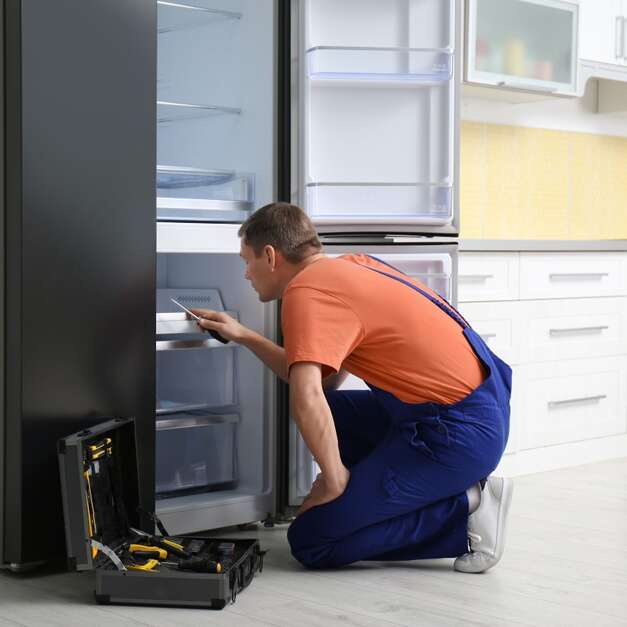Welcome to another in-depth article from your go-to source, TheKitchenApplianceDad.com. Today, we’re tackling an issue that might have puzzled many of you: Why does my refrigerator make popping sounds? It’s a common household concern, and understanding the reason behind these noises can help you ensure your appliance is running smoothly and efficiently. So, let’s dive into the world of refrigerators and decode those mysterious sounds.
Understanding Refrigerator Noises
Refrigerators are complex appliances with various components that work together to keep your food fresh and safe. While they are engineered to operate quietly, it’s not uncommon for them to make a range of sounds. Some noises are normal, while others might be a sign of a potential issue.
Common Sounds and Their Causes
Before we get into the specifics of popping sounds, let’s briefly overview some typical refrigerator noises:
- Humming or Buzzing: This is usually the sound of the refrigerator’s motor or compressor running, which is normal.
- Crackling or Sizzling: Often heard when the defrost heater is on, melting any frost that has accumulated on the evaporator coils.
- Dripping or Gurgling: Occurs when the defrosted water is flowing into the drain pan.
These sounds are generally not a cause for concern. However, popping noises can be a bit more alarming and puzzling.

The Mystery of Popping Sounds
Popping sounds from your refrigerator can be attributed to several factors, ranging from normal operational noises to potential mechanical issues. Here are the most common reasons:
1. Thermal Expansion and Contraction
- Material Response: The interior walls of the refrigerator are made of various materials, including metal and plastic. As the refrigerator cools down or heats up (during defrost cycles), these materials expand and contract. This expansion and contraction can cause popping or cracking noises, which are typically harmless.
2. Defrost Timer
- Defrost Cycle: Most modern refrigerators come equipped with an automatic defrost system. During the defrost cycle, the refrigerator heats up slightly to melt away any frost. The change in temperature can cause popping sounds as materials expand or the ice cracks and melts.
3. Ice Maker Operations
- Ice Ejection: If your refrigerator has an ice maker, the sound of ice being ejected into the bin might be perceived as a popping noise. This is a normal operational sound.
- Water Fill: When the ice maker refills with water, the sudden temperature change can sometimes cause popping sounds.
4. Refrigerant Flow
- Pressure Changes: The refrigerant, which helps cool your refrigerator, moves through the coils at various pressures. When the pressure changes, it can lead to popping or cracking sounds, which are normal and indicate that the system is working as it should.
Troubleshooting Popping Sounds
While most popping sounds are normal, continuous or very loud noises might require further investigation. Here’s how you can troubleshoot:
Check for Obstructions
- Ensure that nothing is pressing against the back or sides of the refrigerator, as this can sometimes cause noises due to materials being pushed together.
Inspect the Ice Maker
- If the noises seem to come from the ice maker, check to make sure it is functioning correctly and that there are no ice build-ups.
Listen for Patterns
- Try to determine if there’s a pattern to the popping sounds, such as occurring during the defrost cycle, which can help pinpoint the cause.
Consult the Manual
- Refer to your refrigerator’s user manual. Manufacturers often list common noises and their causes to help users diagnose issues.
Professional Help
- If you’re unable to determine the cause of the popping sounds or if the refrigerator is exhibiting other issues like not cooling properly, it might be time to call in a professional technician.
Key Takeaways
- Normal Operations: Many popping sounds are a normal part of refrigerator operations due to thermal expansion, the defrost cycle, and refrigerant flow.
- Material Movements: The materials used in the construction of your refrigerator expand and contract with temperature changes, which can cause noises.
- Ice Maker Noises: Popping sounds can often be traced back to the normal operation of the ice maker.
- Troubleshooting Tips: Checking for obstructions, inspecting the ice maker, and consulting the manual are good first steps if the noises seem excessive.
- Professional Assistance: For persistent issues, consider consulting a professional technician.
Understanding why your refrigerator makes popping sounds can help ease any concerns about its operation. Most of the time, these sounds are perfectly normal, but it’s always good to be vigilant and ensure that your appliance is functioning correctly. Keep following TheKitchenApplianceDad.com for more insights and tips on keeping your kitchen appliances in top shape.


